Ultrafiltration in Acute Heart Failure: Implications of Ejection Fraction and Early Response to Treatment From CARRESS-HF.
Date
2020-12-08
Journal Title
Journal ISSN
Volume Title
Repository Usage Stats
views
downloads
Citation Stats
Attention Stats
Abstract
Background Ultrafiltration is not commonly used because of higher incidence of worsening renal function without improved decongestion. We examined differential outcomes of high versus low fluid removal and preserved versus reduced ejection fraction (EF) in CARRESS-HF (Cardiorenal Rescue Study in Acute Decompensated Heart Failure). Methods and Results Baseline characteristics in the ultrafiltration arm were compared according to 24-hour ultrafiltration-based fluid removal above versus below the median. Patients were stratified by EF (≤40% or >40%). We compared clinical parameters of clinical decongestion during the hospitalization based on initial (≤24 hours) response to ultrafiltration. Cox-proportional hazards models were used to identify associations between fluid removal <24 hours and composite of death, hospitalization, or unscheduled outpatient/emergency department visit during study follow-up. The intention-to-treat analysis included 93 patients. Within 24 hours, median fluid removal was 1.89 L (Q1, Q3: 1.22, 3.16). The high fluid removal group had a greater urine output (9.08 versus 6.23 L, P=0.027) after 96 hours. Creatinine change from baseline to 96 hours was similar in both groups (0.10 mg/dL increase, P=0.610). The EF >40% group demonstrated larger increases of change in creatinine (P=0.023) and aldosterone (P=0.038) from baseline to 96 hours. Among patients with EF >40%, those with above median fluid removal (n=17) when compared with below median (n=17) had an increased rate of the combined end point (87.5% versus 47.1%, P=0.014). Conclusions In patients with acute heart failure, higher initial fluid removal with ultrafiltration had no association with worsening renal function. In patients with EF >40%, ultrafiltration was associated with worsening renal function irrespective of fluid removal rate and higher initial fluid removal was associated with higher rates of adverse clinical outcomes, highlighting variable responses to decongestive therapy.
Type
Department
Description
Provenance
Citation
Permalink
Published Version (Please cite this version)
Publication Info
Fudim, Marat, Jeremy Brooksbank, Anna Giczewska, Stephen J Greene, Justin L Grodin, Pieter Martens, Jozine M Ter Maaten, Abhinav Sharma, et al. (2020). Ultrafiltration in Acute Heart Failure: Implications of Ejection Fraction and Early Response to Treatment From CARRESS-HF. Journal of the American Heart Association, 9(24). p. e015752. 10.1161/jaha.119.015752 Retrieved from https://hdl.handle.net/10161/22559.
This is constructed from limited available data and may be imprecise. To cite this article, please review & use the official citation provided by the journal.
Collections
Scholars@Duke
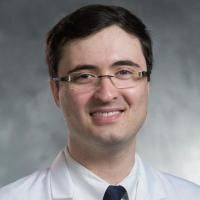
Marat Fudim
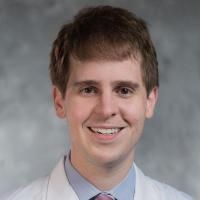
Stephen Greene
I am a cardiologist with a clinical and research interest in heart failure. I take care of patients with various types of heart failure, including patients who are best treated with medications and patients who receive advanced therapies like heart transplantation and mechanical assist devices. I became a heart failure cardiologist to help patients manage their heart conditions and best achieve their goals for their health. I am strongly committed to helping patients thoroughly understand their medical conditions and helping them make informed medical decisions aligned with their preferences.
My research interests are focused on strategies and therapies to improve outcomes and quality of life for patients with heart failure. This involves research through clinical trials and through examining data from real-world clinical practice. Below, you will find my specific research interests:
- Use and dosing of evidence-based heart failure medications
- Management of worsening heart failure outside the hospital
- Novel pharmacological and non-pharmacological approaches to heart failure
- Improving outcomes following a hospitalization for heart failure
- Surrogate and nonfatal endpoints in heart failure clinical trials
- Clinical trial design and operations
- Improving site-based heart failure research
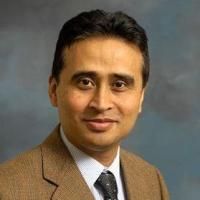
Hrishikesh Chakraborty
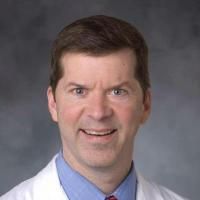
Gary Michael Felker
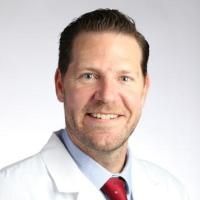
Robert John Mentz
I am a cardiologist with a clinical and research interest in heart failure (going from Failure to Function), including advanced therapies such as cardiac transplantation and mechanical assist devices or “heart pumps."
I serve our group as Chief of the Heart Failure Section.
I became a heart failure cardiologist in order to help patients manage their chronic disease over many months and years. I consider myself strongly committed to compassionate patient care with a focus on quality of life and patient preference.
I am the Editor in Chief of the Journal of Cardiac Failure - The official journal of the Heart Failure Society of America.
My research interests are focused on treating co-morbid diseases in heart failure patients and improving outcomes across the cardiovascular spectrum through clinical trials and outcomes research. Below, you will find my specific research interests:
- Cardiometabolic disease
- Co-morbidity characterization (diabetes, sleep apnea, renal failure) in heart failure
- Phenotypic characterization and risk prognostication of patients with heart failure
- Role of surrogate and nonfatal endpoints in clinical heart failure trials
- Biomarkers in heart failure
- Novel pharmacological and non-pharmacological approaches to heart failure
- Improving site-based heart failure research
Unless otherwise indicated, scholarly articles published by Duke faculty members are made available here with a CC-BY-NC (Creative Commons Attribution Non-Commercial) license, as enabled by the Duke Open Access Policy. If you wish to use the materials in ways not already permitted under CC-BY-NC, please consult the copyright owner. Other materials are made available here through the author’s grant of a non-exclusive license to make their work openly accessible.
